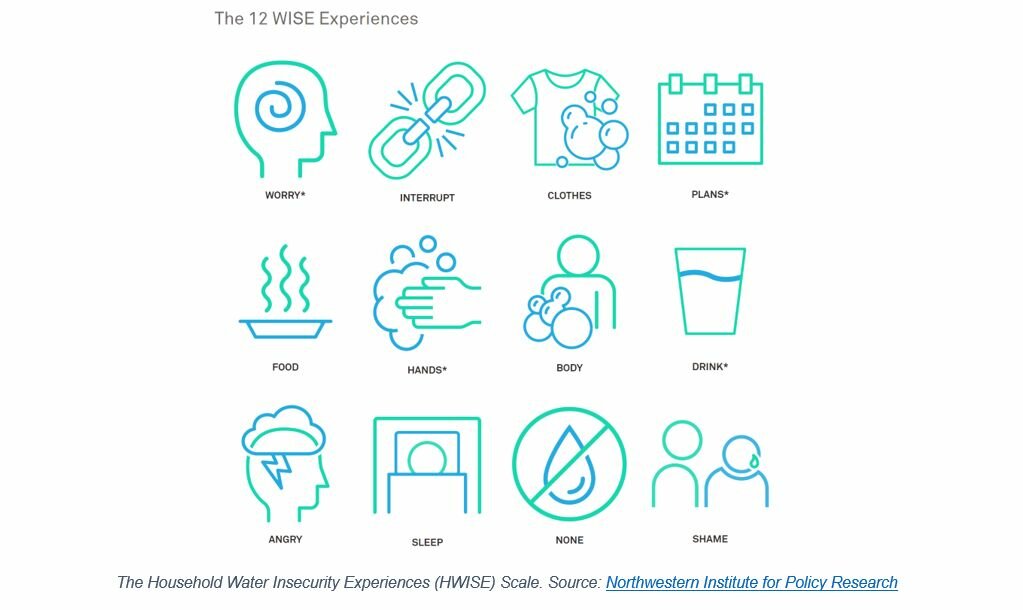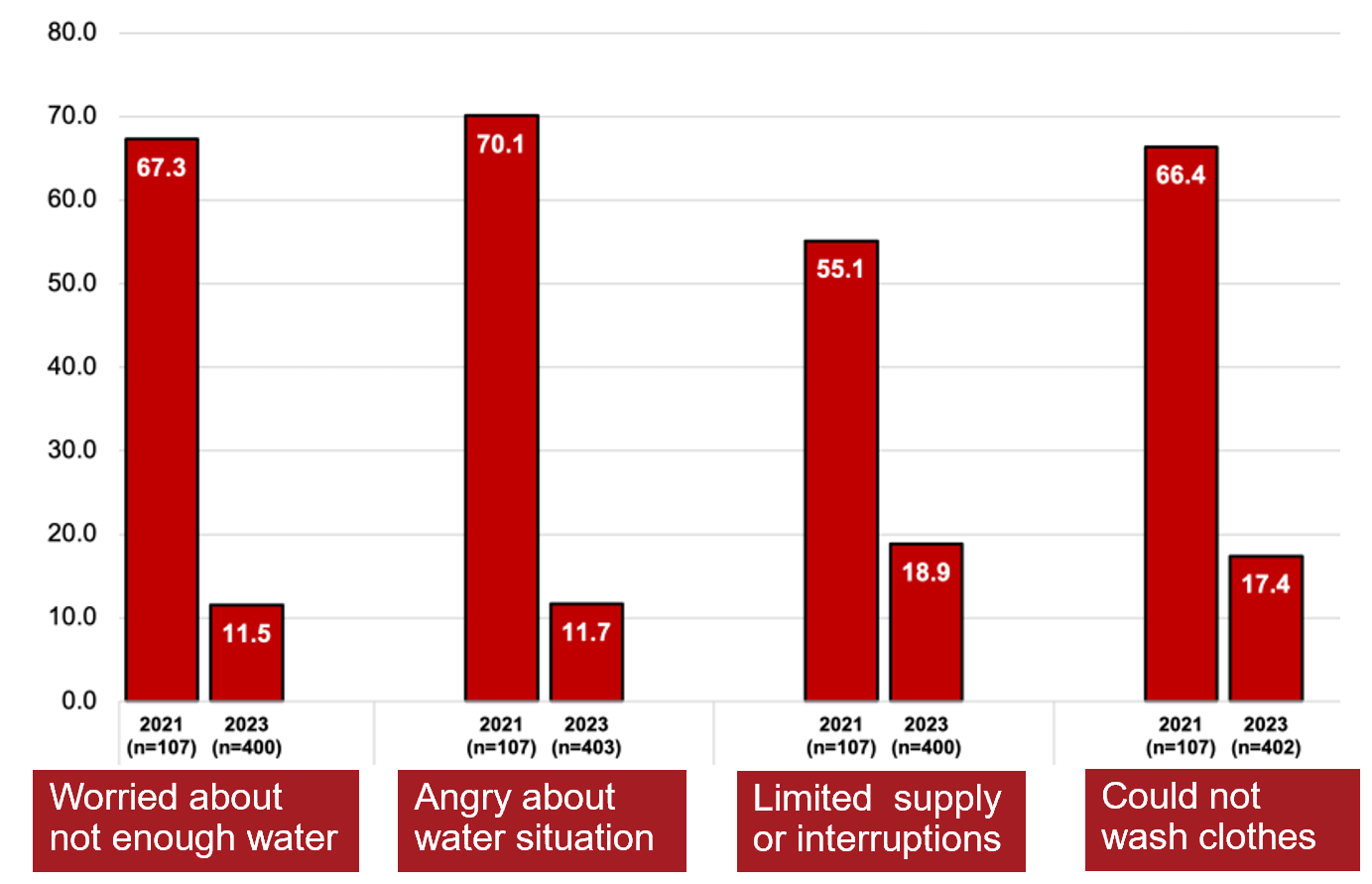There are dozens of tools to keep tabs on the safety and quantity of water flowing to communities around the world. Satellites can remotely monitor the flow of water. Simple chemical tests can reveal water quality. Groundwater monitoring systems can track the volume of supply throughout the year. Do we really need another water indicator?
The answer is yes. Though numerous indicators focus on the accessibility and functionality of water infrastructure, no measurement existed to quantify people’s experiences of water insecurity at the household and individual level in low- and middle-income countries.
The Water Insecurity Experiences (WISE) Scales were created to fill this gap by a collaboration of 50 cross-disciplinary scholars and practitioners, led by Northwestern University. To date, the scales have been implemented in at least 60 countries by more than 100 organizations, including Helvetas.
The household-focused version of the scale, HWISE, includes 12 simply phrased questions that take 3-5 minutes to administer. The HWISE Scale asks respondents to reflect on experiences of water availability, accessibility, use, acceptability and reliability throughout the prior four weeks. For example, in the last four weeks, have they been unable to wash their clothes because of an inadequate water supply? The scale also considers the emotional toll that accompanies water insecurity, such as worry and shame. The results are revealing gender, age and education disparities in water access and use that have long been obscured by traditional monitoring practices.

Applying the scale in Nepal
Helvetas is piloting the use of the HWISE Scale in the Karnali Province in Nepal, an area where we have implemented water infrastructure improvement projects for almost 50 years, to monitor people’s experiences before and after water service interventions.
In a 2021 HWISE survey, 18% of respondents reported feeling water insecure. That same year, with the support of charity: water, we partnered with local actors to install household water connections in over 5,500 households. In the follow-up survey in 2022, less than 3% of respondents were water insecure.

The initial data results show a significant decrease in people’s experiences of water insecurity after receiving household connections. In particular, there was a marked decrease in reports of feeling angry about the water service, feeling worried about not having enough water, and experiencing interruptions or a limited water supply.
Helvetas plans to collaborate with Northwestern University and the University of North Carolina at Chapel Hill to research the Nepal program’s use of the HWISE Scale. The scale is also being piloted as part of a baseline survey of 50 villages in Madagascar that will be connected to water service through charity: water’s support.
Adapting the scales for schools and health centers
Though implementation of the scales is widespread, they were not designed for institutions, and thus far have focused on increasing understanding of water insecurity at the individual and household level. Helvetas is collaborating with the Swiss Water and Sanitation Consortium (SWSC) and Northwestern University to adapt the scales for use in evaluating experiences of those working in and receiving services from schools and health care facilities.
The eight members of the SWSC will begin work on a fourth project phase (2023-2027) in July in over 250 schools and 150 health care facilities in 11 countries, most of which are in rural locations. Northwestern University, with the support of Helvetas USA and SWSC, will lead the development of scales that can be used in schools to measure the perceptions and experiences about water, sanitation, hand hygiene and waste. SWSC members will also support testing with teachers, students and parents in schools and clinical and non-clinical staff in health centers.

